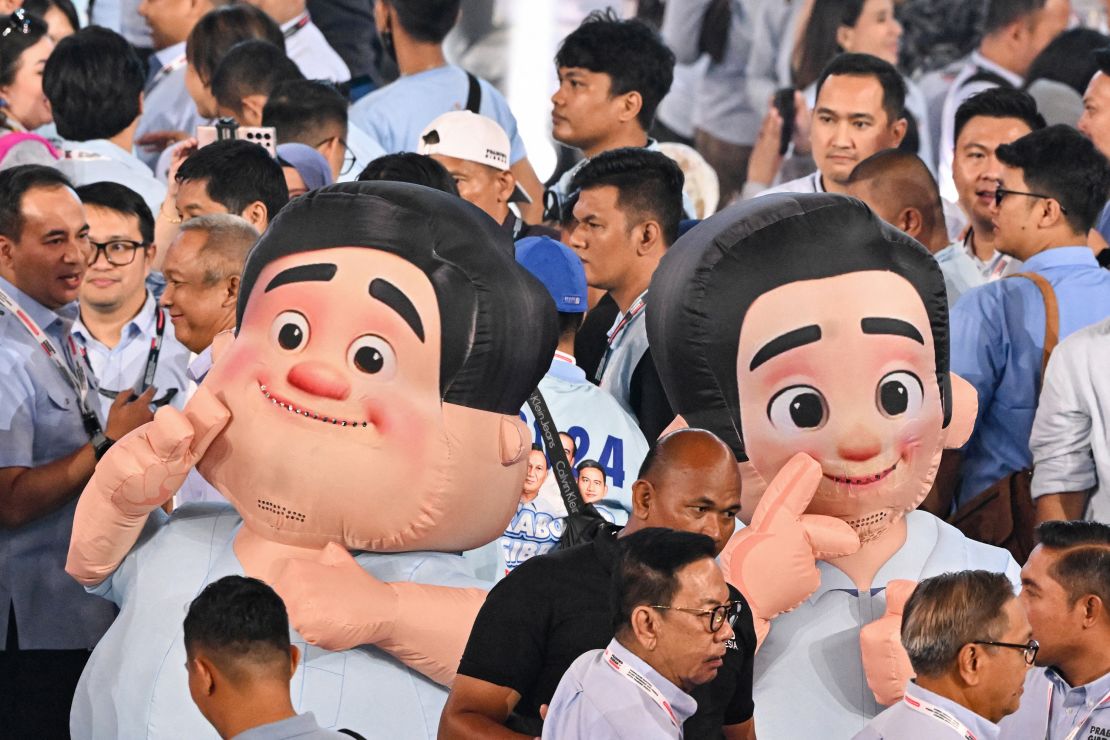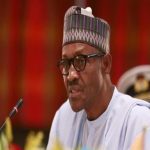Voting commenced in Indonesia on Wednesday, with over 200 million voters participating to elect a new president amidst concerns over living expenses and human rights.
Indonesia is poised to transition into a new political era following President Joko Widodo’s completion of his maximum presidential term.
In this significant event, Indonesians will not only choose a new president and vice president but also elect parliamentary and local representatives in what is the world’s largest single-day election.
Over 204 million out of Indonesia’s 270 million population are registered to vote, and although voting isn’t mandatory, election day is a public holiday, ensuring a typically high turnout

According to Indonesia’s general election commission, the voter turnout in the previous election in 2019 stood at 81 per cent.
There exist 18 national political parties across Indonesia, competing for 575 parliamentary seats.
With incumbent President Joko Widodo, commonly referred to as ‘Jokowi’, having served the maximum two terms, the upcoming election signifies the first change in leadership in a decade.
Three presidential and vice-presidential pairings are contending for the top positions, featuring a former military general, a former academic, and a self-proclaimed “man of the people.”
A presidential candidate needs a simple majority of at least 50% of total votes and 20% of votes in more than half of the country’s 38 provinces to win. If no one succeeds, a run-off will take place on June 26.
About seven million election officials and independent workers will oversee the process at voting sites.
The elections commission is likely to reveal a preliminary verdict on the evening of February 14th, but the actual result might take up to 35 days, particularly if the margin of votes is close.
Voting commenced in Indonesia on Wednesday, with over 200 million voters participating to elect a new president amidst concerns over living expenses and human rights.
Indonesia is poised to transition into a new political era following President Joko Widodo’s completion of his maximum presidential term.
In this significant event, Indonesians will not only choose a new president and vice president but also elect parliamentary and local representatives in what is the world’s largest single-day election.
Over 204 million out of Indonesia’s 270 million population are registered to vote, and although voting isn’t mandatory, election day is a public holiday, ensuring a typically high turnout

According to Indonesia’s general election commission, the voter turnout in the previous election in 2019 stood at 81 per cent.
There exist 18 national political parties across Indonesia, competing for 575 parliamentary seats.
With incumbent President Joko Widodo, commonly referred to as ‘Jokowi’, having served the maximum two terms, the upcoming election signifies the first change in leadership in a decade.
Three presidential and vice-presidential pairings are contending for the top positions, featuring a former military general, a former academic, and a self-proclaimed “man of the people.”
A presidential candidate needs a simple majority of at least 50% of total votes and 20% of votes in more than half of the country’s 38 provinces to win. If no one succeeds, a run-off will take place on June 26.
About seven million election officials and independent workers will oversee the process at voting sites.
The elections commission is likely to reveal a preliminary verdict on the evening of February 14th, but the actual result might take up to 35 days, particularly if the margin of votes is close.
Voting commenced in Indonesia on Wednesday, with over 200 million voters participating to elect a new president amidst concerns over living expenses and human rights.
Indonesia is poised to transition into a new political era following President Joko Widodo’s completion of his maximum presidential term.
In this significant event, Indonesians will not only choose a new president and vice president but also elect parliamentary and local representatives in what is the world’s largest single-day election.
Over 204 million out of Indonesia’s 270 million population are registered to vote, and although voting isn’t mandatory, election day is a public holiday, ensuring a typically high turnout

According to Indonesia’s general election commission, the voter turnout in the previous election in 2019 stood at 81 per cent.
There exist 18 national political parties across Indonesia, competing for 575 parliamentary seats.
With incumbent President Joko Widodo, commonly referred to as ‘Jokowi’, having served the maximum two terms, the upcoming election signifies the first change in leadership in a decade.
Three presidential and vice-presidential pairings are contending for the top positions, featuring a former military general, a former academic, and a self-proclaimed “man of the people.”
A presidential candidate needs a simple majority of at least 50% of total votes and 20% of votes in more than half of the country’s 38 provinces to win. If no one succeeds, a run-off will take place on June 26.
About seven million election officials and independent workers will oversee the process at voting sites.
The elections commission is likely to reveal a preliminary verdict on the evening of February 14th, but the actual result might take up to 35 days, particularly if the margin of votes is close.
Voting commenced in Indonesia on Wednesday, with over 200 million voters participating to elect a new president amidst concerns over living expenses and human rights.
Indonesia is poised to transition into a new political era following President Joko Widodo’s completion of his maximum presidential term.
In this significant event, Indonesians will not only choose a new president and vice president but also elect parliamentary and local representatives in what is the world’s largest single-day election.
Over 204 million out of Indonesia’s 270 million population are registered to vote, and although voting isn’t mandatory, election day is a public holiday, ensuring a typically high turnout

According to Indonesia’s general election commission, the voter turnout in the previous election in 2019 stood at 81 per cent.
There exist 18 national political parties across Indonesia, competing for 575 parliamentary seats.
With incumbent President Joko Widodo, commonly referred to as ‘Jokowi’, having served the maximum two terms, the upcoming election signifies the first change in leadership in a decade.
Three presidential and vice-presidential pairings are contending for the top positions, featuring a former military general, a former academic, and a self-proclaimed “man of the people.”
A presidential candidate needs a simple majority of at least 50% of total votes and 20% of votes in more than half of the country’s 38 provinces to win. If no one succeeds, a run-off will take place on June 26.
About seven million election officials and independent workers will oversee the process at voting sites.
The elections commission is likely to reveal a preliminary verdict on the evening of February 14th, but the actual result might take up to 35 days, particularly if the margin of votes is close.
Voting commenced in Indonesia on Wednesday, with over 200 million voters participating to elect a new president amidst concerns over living expenses and human rights.
Indonesia is poised to transition into a new political era following President Joko Widodo’s completion of his maximum presidential term.
In this significant event, Indonesians will not only choose a new president and vice president but also elect parliamentary and local representatives in what is the world’s largest single-day election.
Over 204 million out of Indonesia’s 270 million population are registered to vote, and although voting isn’t mandatory, election day is a public holiday, ensuring a typically high turnout

According to Indonesia’s general election commission, the voter turnout in the previous election in 2019 stood at 81 per cent.
There exist 18 national political parties across Indonesia, competing for 575 parliamentary seats.
With incumbent President Joko Widodo, commonly referred to as ‘Jokowi’, having served the maximum two terms, the upcoming election signifies the first change in leadership in a decade.
Three presidential and vice-presidential pairings are contending for the top positions, featuring a former military general, a former academic, and a self-proclaimed “man of the people.”
A presidential candidate needs a simple majority of at least 50% of total votes and 20% of votes in more than half of the country’s 38 provinces to win. If no one succeeds, a run-off will take place on June 26.
About seven million election officials and independent workers will oversee the process at voting sites.
The elections commission is likely to reveal a preliminary verdict on the evening of February 14th, but the actual result might take up to 35 days, particularly if the margin of votes is close.
Voting commenced in Indonesia on Wednesday, with over 200 million voters participating to elect a new president amidst concerns over living expenses and human rights.
Indonesia is poised to transition into a new political era following President Joko Widodo’s completion of his maximum presidential term.
In this significant event, Indonesians will not only choose a new president and vice president but also elect parliamentary and local representatives in what is the world’s largest single-day election.
Over 204 million out of Indonesia’s 270 million population are registered to vote, and although voting isn’t mandatory, election day is a public holiday, ensuring a typically high turnout

According to Indonesia’s general election commission, the voter turnout in the previous election in 2019 stood at 81 per cent.
There exist 18 national political parties across Indonesia, competing for 575 parliamentary seats.
With incumbent President Joko Widodo, commonly referred to as ‘Jokowi’, having served the maximum two terms, the upcoming election signifies the first change in leadership in a decade.
Three presidential and vice-presidential pairings are contending for the top positions, featuring a former military general, a former academic, and a self-proclaimed “man of the people.”
A presidential candidate needs a simple majority of at least 50% of total votes and 20% of votes in more than half of the country’s 38 provinces to win. If no one succeeds, a run-off will take place on June 26.
About seven million election officials and independent workers will oversee the process at voting sites.
The elections commission is likely to reveal a preliminary verdict on the evening of February 14th, but the actual result might take up to 35 days, particularly if the margin of votes is close.
Voting commenced in Indonesia on Wednesday, with over 200 million voters participating to elect a new president amidst concerns over living expenses and human rights.
Indonesia is poised to transition into a new political era following President Joko Widodo’s completion of his maximum presidential term.
In this significant event, Indonesians will not only choose a new president and vice president but also elect parliamentary and local representatives in what is the world’s largest single-day election.
Over 204 million out of Indonesia’s 270 million population are registered to vote, and although voting isn’t mandatory, election day is a public holiday, ensuring a typically high turnout

According to Indonesia’s general election commission, the voter turnout in the previous election in 2019 stood at 81 per cent.
There exist 18 national political parties across Indonesia, competing for 575 parliamentary seats.
With incumbent President Joko Widodo, commonly referred to as ‘Jokowi’, having served the maximum two terms, the upcoming election signifies the first change in leadership in a decade.
Three presidential and vice-presidential pairings are contending for the top positions, featuring a former military general, a former academic, and a self-proclaimed “man of the people.”
A presidential candidate needs a simple majority of at least 50% of total votes and 20% of votes in more than half of the country’s 38 provinces to win. If no one succeeds, a run-off will take place on June 26.
About seven million election officials and independent workers will oversee the process at voting sites.
The elections commission is likely to reveal a preliminary verdict on the evening of February 14th, but the actual result might take up to 35 days, particularly if the margin of votes is close.
Voting commenced in Indonesia on Wednesday, with over 200 million voters participating to elect a new president amidst concerns over living expenses and human rights.
Indonesia is poised to transition into a new political era following President Joko Widodo’s completion of his maximum presidential term.
In this significant event, Indonesians will not only choose a new president and vice president but also elect parliamentary and local representatives in what is the world’s largest single-day election.
Over 204 million out of Indonesia’s 270 million population are registered to vote, and although voting isn’t mandatory, election day is a public holiday, ensuring a typically high turnout

According to Indonesia’s general election commission, the voter turnout in the previous election in 2019 stood at 81 per cent.
There exist 18 national political parties across Indonesia, competing for 575 parliamentary seats.
With incumbent President Joko Widodo, commonly referred to as ‘Jokowi’, having served the maximum two terms, the upcoming election signifies the first change in leadership in a decade.
Three presidential and vice-presidential pairings are contending for the top positions, featuring a former military general, a former academic, and a self-proclaimed “man of the people.”
A presidential candidate needs a simple majority of at least 50% of total votes and 20% of votes in more than half of the country’s 38 provinces to win. If no one succeeds, a run-off will take place on June 26.
About seven million election officials and independent workers will oversee the process at voting sites.
The elections commission is likely to reveal a preliminary verdict on the evening of February 14th, but the actual result might take up to 35 days, particularly if the margin of votes is close.














